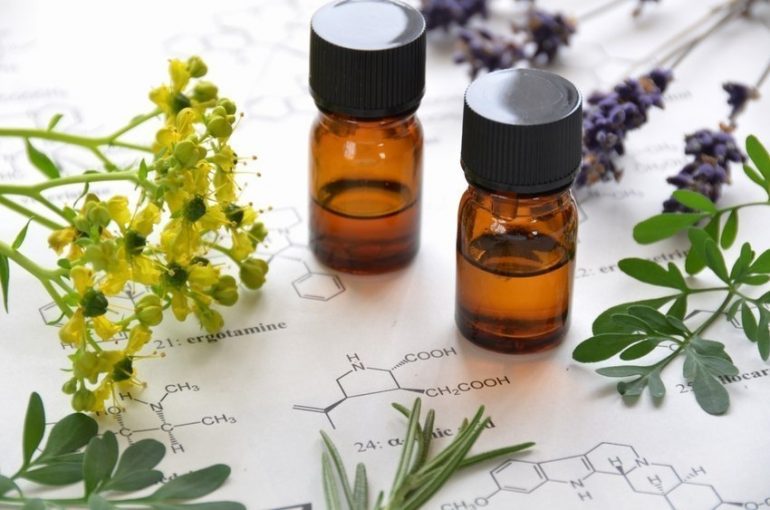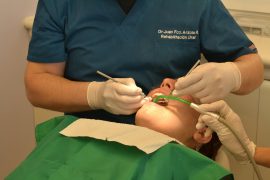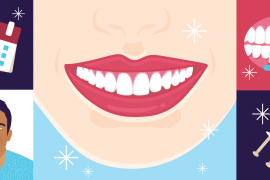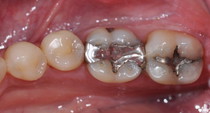Essential oils (EO) and tinctures are a wonderful alternative for natural dental care. They can both offer the benefits of being analgesic, antifungal, anti-inflammatory, anti-microbial, antiseptic, and detoxifying.
You can make your own tooth powders and mouth rinse using tinctures and essential oils. Some of the most beneficial herbs for dental care include: cinnamon, clove, echinacea, eucalyptus, gotu kola, lavender, lemon, peppermint and thyme.
What are the benefits of essential oils?
This chart created by The Dental Herb Company outlines commonly used EO’s, their properties and benefits.
| Herb | Properties | Benefits |
| Cinnamon Bark | An astringent and analgesic | Helps contract, firm and strengthen oral tissue, reduce surface inflammation and irritation, and creates a protective barrier from infection; soothes toothaches. |
| Clove | Analgesic, pain killer | Reduces pain signals to the brain, increases circulation, quick relief for toothaches, numbing effect. |
| Echinacea | Antimicrobial, anti-inflammatory and immunomodulating. | Helps prevent infection, repair damaged tissue and regenerate connective tissue |
| Eucalyptus | Aromatic, antibacterial, antifungal,
antiseptic and stimulating. |
Helps boost circulation and speeds the healing process; effective against mouth ulcers and oral infection |
| Gotu kola | Anti-inflammatory and soothing | Stimulates blood vessel growth in connective tissue. Helps heal wounds. |
| Lavender | Aromatic, sedating, antibacterial,anti-inflammatory, antimicrobial,
antiseptic and stimulating. |
Effective against halitosis, helps heal damaged tissue, provides mouth pain relief and helps calm the nervous system and decrease stress. |
| Peppermint | Antibacterial, anti-inflammatory,antifungal, antimicrobial, antiseptic,sedating and stimulating | Offers protection from oral infection, and pain relief.
Enhances blood circulation. |
| Thyme | Antibacterial, anti-inflammatory, antiseptic, and stimulating. | Helps treat oral inflammation and infection. |
Essential Oil or Herbal Tinctures?
Both essential oils and tinctures are made from herbs, but the process in which they are made is different. Essential oils are more concentrated and buying pure essential oils may not fit into everyone’s budget. Tinctures are diluted in comparison and are less expensive. Preference can be based on budget, ease of use and ability to find products.
It is very important to understand, most essential oils are not for ingestion, regardless of quality. Essential oils should not be swallowed. Tinctures on the other hand are safe for ingestion.
Tinctures are a concentrated herbal extract in an alcohol base. Tinctures are also available in glycerin bases. A glycerite has a shelf life of 14-24 months, versus an alcohol extract which has a shelf life of 4-6 years.
Essential oils have a variable shelf life, based on the variety. Steam distilled EO have a shelf life of 2years or more if stored properly.
Are your essential oils pure?
Be sure you’re using 100% pure essential oils. Do not use “fragrance” oils or “scented”. If you use essential oils be sure that what you are using is pure. Some brands use a petroleum base solvent which can be neuro toxic, while other brands use synthetics. These types of oils can have long lasting negative impacts in the environment, and are a source of volatile organic chemicals that can also negatively impact your indoor air quality and your health.
So how can you tell if your oil is pure?
Test it on blotting paper. Put a few drops of oil on blotting paper. Pure essential oils will not leave any residue when it evaporates, while petroleum and synthetic oils will.
Look for these signs:
Essential oils should not feel greasy on your skin.
Will not smell like alcohol.
Disappears on blotting paper.
Will not dissolve in water.
Won’t smell rancid.
Herbal mouth wash for healthy gums
There are many herbal mouth rinses for sale on line, as well as many recipes. This is one of my favorites, created by Rosalee de le Foret.
1/2 ounce Echinacea tincture
1/4 ounce Oregon Grape Root tincture
1/8 ounce Plantain tincture
1/8 ounce Propolis tincture
To use this blend simply combine the above amounts in an amber bottle with a dropper.
Then place 30-60 drops in a half cup of water.
Note: The water will turn cloudy as a result of the propolis resin mixing with water. Swish for 5-20 seconds and then spit out the mixture. Rinse if desire. I purchased the herbal tinctures for this recipe from Standard Process and Wise Woman Herbals.
Reputable companies for herbs, tinctures
Mountain Rose Herbs
Star West Botanicals
Organic Herb Trading Company
Standard Process
Wise Woman Herbals
Reputable companies for essential oils
Mountain Rose Herbs
Aura Cacia
Young Living
doTerra
Essential Vitality
Ready-made herbal mouth rinses
www.dentalherb.com
Standard Process- sells herbal tinctures to combine to make your own mouthwash
References:
The Way of Herbs. By Michael Tierra, L. Ac., O.M.D.
Dental Herbalism. Natural Therapies for the Mouth. By Leslie M. Alexander and Linda A. Straub-Bruce
I originally posted this article at The Hearty Soul








